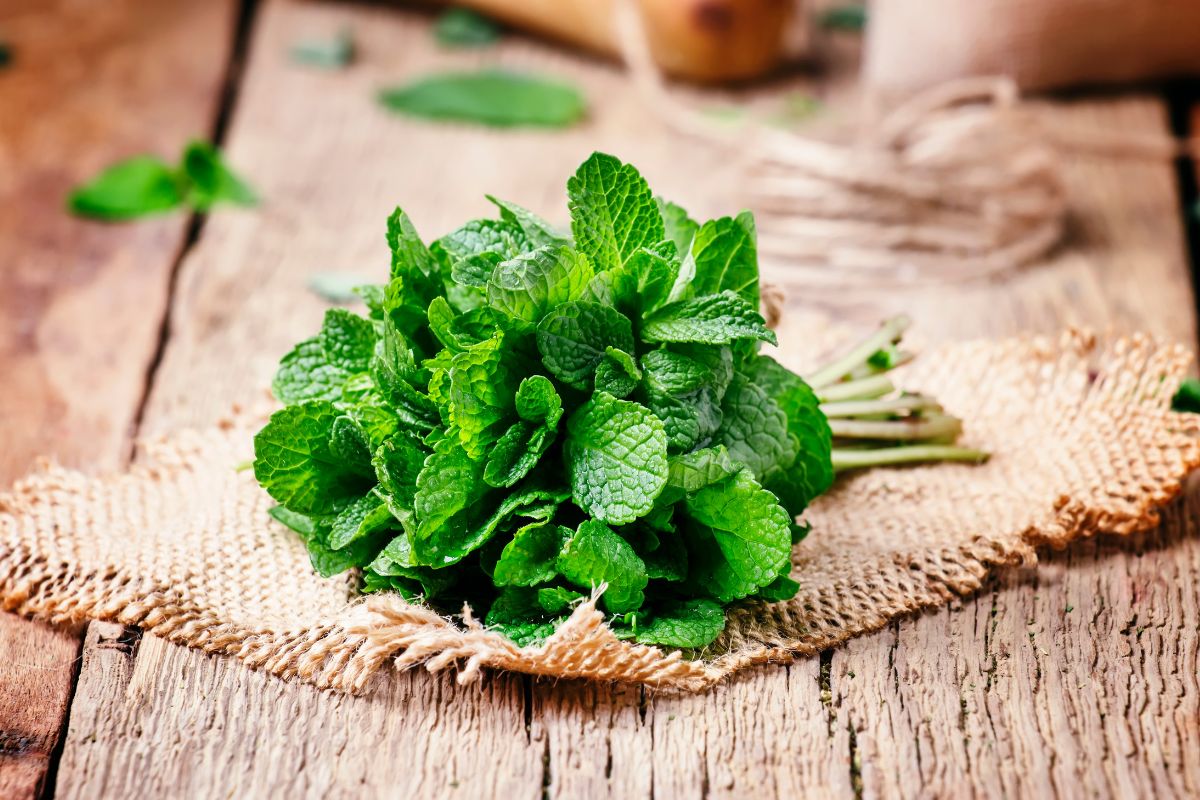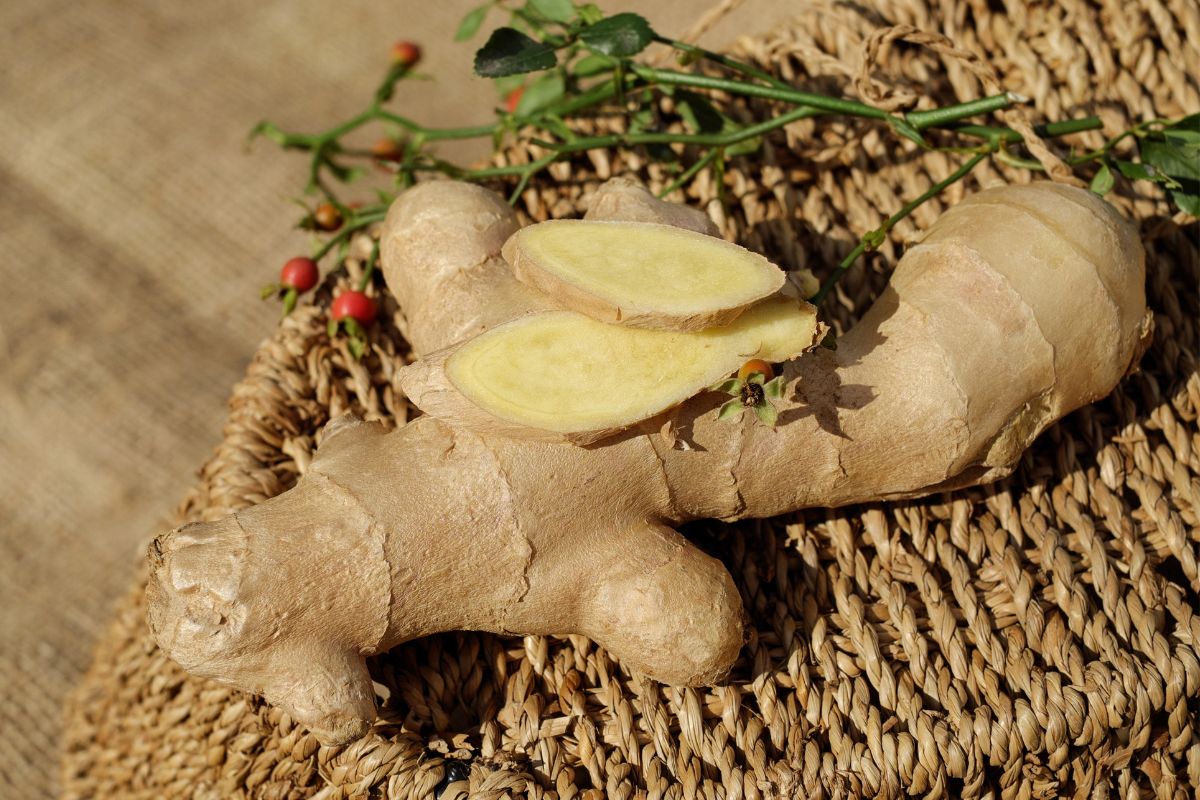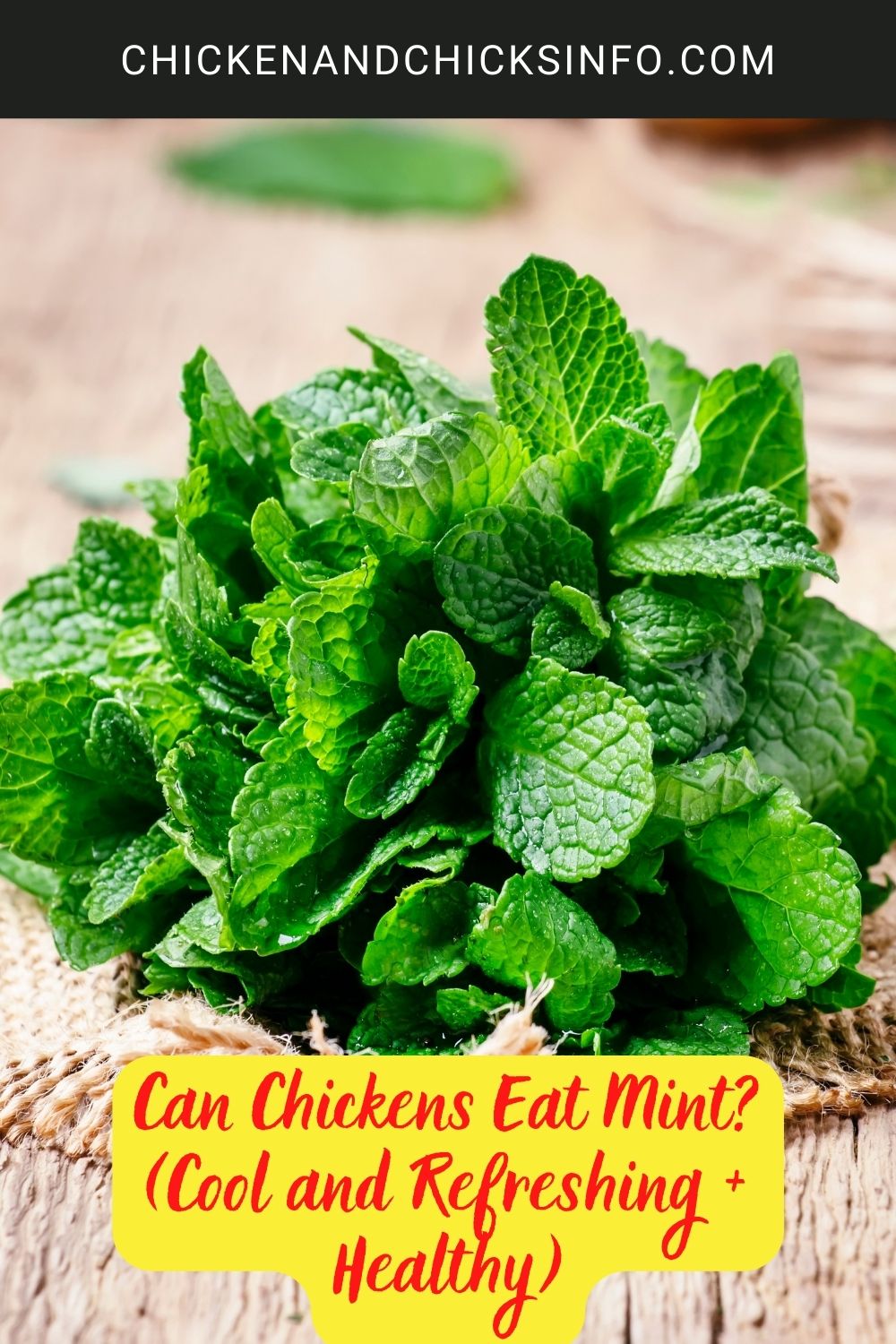
Chickens can eat mint, spearmint, peppermint, and other mint plants, yes. If you’re looking to add a herb to your garden, mint is one of the best. It offers a number of health benefits and other useful applications.
Jump to:
Health Benefits of Mint for Chickens
Mint is probably best known for its fresh aroma and cooling effects, but there’s a lot more to this sweet-smelling herb.
It’s a nutrient-rich herb that offers a wide range of health and wellness benefits for us, a few of which apply to chickens too.
One of the most powerful and effective benefits of eating mint is to aid digestion. Something chickens often find themselves in need of as they munch anything that even looks like it might be edible.
You’ll be family with one of the active ingredients in mint, menthol, as it’s in all kinds of products designed to help us breathe better.
Things like cough sweets, nasal sprays, gum, etc.
Menthol can also help alleviate some respiratory issues for your chicks too. Chickens are susceptible to respiratory conditions, I think it’s something we should all be proactive about by using natural remedies like herbs.
Then there are the general immune system-boosting properties of supplementing their feed with a nutrient-rich herb like mint - health benefits all around.
Will Mint Help Cool Chickens?
The answer to this will come as a surprise to many, but it’s actually no. Mint does not cool us, chickens, and any other living things down.
It feels like it does. But it’s only a feeling, your temperature doesn’t actually drop as a result of eating mint.
There is a lot of misinformation regarding this online. But if you read credible scientific studies and reports, like this one on LiveScience, it’s explained in detail.
Basically, it’s the menthol in mint that stimulates our brains to think that we’re cooler. Much like when you taste a hot chili and feel like your mouth is on fire.
Your mouth isn’t actually any hotter, it’s just the receptors in your taste buds being “tricked” by the capsaicin.
Still, if you want to add a few mint leaves, stems, or stalks to their water in the summer months - as many backyard chicken owners do - go ahead. It certainly doesn’t do any harm.
Other Benefits of Growing/Using Mint

Obviously, the direct health benefits associated with mint are great. The reasons to grow mint plants do not stop there though, here are some other benefits associated with the mint family:
Pleasant Aroma/Smell Masking
I’m sure there is someone reading this who hates the smell of mint, but you’re in the minority!
Personally, I love the smell of mint. Particularly lemon balm and chocolate mint, and enjoy having a fresh minty smell hit me when I’m in my yard and there’s a breeze.
Chickens aren’t the smelliest animals. In fact, they’re really not that bad. But, let’s be honest, chickens do poop a lot, and in the summer there’s no mistaking that smell.
Mint is one of the most aromatic herbs, and it’ll mask small amounts of unpleasant smells and odors.
Repelling Pests/Parasites
I’ve read quite a lot of debates about how effective mint is at repelling pests, from small parasites to rodents.
Like a lot of the information you’ll find online if you go down the rabbit hole researching it; some people say it worked wonders for them, and others said it didn’t do anything.
I can share my own experience. I know for a fact that peppermint essential oil is great for repelling mice, I’ve used it myself and it worked.
I also grow mint around my coop because friends of mine are convinced it helps keep parasites away. I don’t have a parasite problem, so maybe it is the mint. I love the smell anyway, so it’s a win-win.
Other Herbs and Spices That Are Great for Chickens
Mint isn’t the only herb that’s great for chickens. In fact, almost all herbs and spices carry their own unique health and wellness benefits and can benefit your flock.
Here are some of the herbs and plants commonly given to chickens within the backyard chicken community:
Ginger

Known as one of the healthiest spices on the planet, it’s no surprise that putting a little ginger in with their feed has some health benefits for chickens.
Studies have shown this spice can improve egg-laying performance and increase the antioxidant properties in your hen’s eggs.
Ginger is also known to help with respiratory issues, something chickens can be susceptible to - making ginger a good choice in winter months.
Cinnamon
Like ginger, cinnamon is a nice winter warming spice. I can’t get enough of the taste and the sweet, spicy aroma, so we always have cinnamon in our spice rack.
I usually just add about a teaspoon to their feed once a day throughout the winter. Cinnamon is an expectorant, it has natural antibacterial and anti-inflammatory properties.
Catnip
Catnip is a herb we have always bought and given to our cats. However, after reading about the benefits it also has for chickens, we decided to add some to our herb garden.
It doesn’t have the same euphoric effect on chickens (that would be something to see if it did). Catnip is commonly used for its powerful anti-parasitic properties.
I chop up the leaves and sprinkle them around the coop. A little in their nesting boxes and bedding to help keep parasites at bay.
Thyme
Thyme is another herb that’s commonly used in remedies to help reduce cold, cough, and other respiratory issues.
It contains a compound called thymol, an ingredient used in pesticides - so you know it’s a powerful natural pest repellent.
Being rich in nutrients, thyme is also a good immune-boosting food supplement. Whether you’re growing it, throwing it around the coop, or feeding it to your chickens, it’s all positives.
Lavender
You’ve probably realized by now that I’m a huge fan of herbs, so it’ll come as no surprise that I love lavender too!
Used for thousands of years for its powerful medicinal benefits, you can’t go wrong with lavender.
It’s most well-known for its antiseptic and anti-inflammatory properties, as well as aiding digestion and relaxation.
Add some dried lavender to your chickens’ coop or to their feed for an immune-boosting power supplement.
In Summary
Personally, I love supplementing my chickens’ diets with natural foods like herbs and spices. Each plant possesses its own health and wellness benefits, it’s a topic worth looking into.
As for which herbs are the best to grow and get started with - mint is super easy to grow and at the very least, you’re going to have a minty smelling yard!





